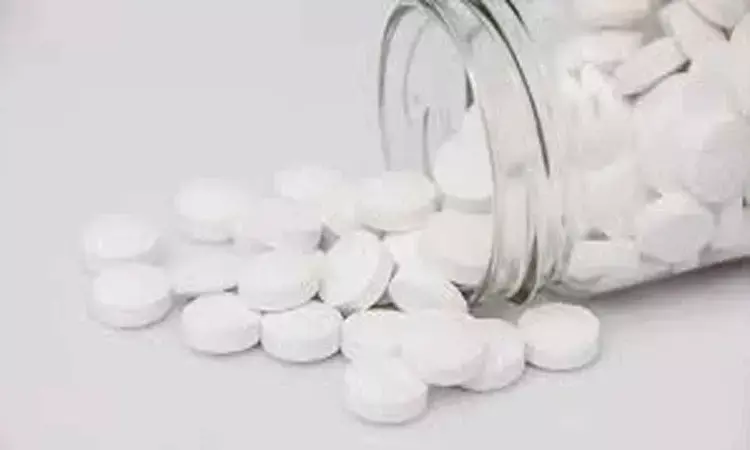- Home
- Medical news & Guidelines
- Anesthesiology
- Cardiology and CTVS
- Critical Care
- Dentistry
- Dermatology
- Diabetes and Endocrinology
- ENT
- Gastroenterology
- Medicine
- Nephrology
- Neurology
- Obstretics-Gynaecology
- Oncology
- Ophthalmology
- Orthopaedics
- Pediatrics-Neonatology
- Psychiatry
- Pulmonology
- Radiology
- Surgery
- Urology
- Laboratory Medicine
- Diet
- Nursing
- Paramedical
- Physiotherapy
- Health news
- Fact Check
- Bone Health Fact Check
- Brain Health Fact Check
- Cancer Related Fact Check
- Child Care Fact Check
- Dental and oral health fact check
- Diabetes and metabolic health fact check
- Diet and Nutrition Fact Check
- Eye and ENT Care Fact Check
- Fitness fact check
- Gut health fact check
- Heart health fact check
- Kidney health fact check
- Medical education fact check
- Men's health fact check
- Respiratory fact check
- Skin and hair care fact check
- Vaccine and Immunization fact check
- Women's health fact check
- AYUSH
- State News
- Andaman and Nicobar Islands
- Andhra Pradesh
- Arunachal Pradesh
- Assam
- Bihar
- Chandigarh
- Chattisgarh
- Dadra and Nagar Haveli
- Daman and Diu
- Delhi
- Goa
- Gujarat
- Haryana
- Himachal Pradesh
- Jammu & Kashmir
- Jharkhand
- Karnataka
- Kerala
- Ladakh
- Lakshadweep
- Madhya Pradesh
- Maharashtra
- Manipur
- Meghalaya
- Mizoram
- Nagaland
- Odisha
- Puducherry
- Punjab
- Rajasthan
- Sikkim
- Tamil Nadu
- Telangana
- Tripura
- Uttar Pradesh
- Uttrakhand
- West Bengal
- Medical Education
- Industry
Even short course of Oral steroids tied to severe adverse events: Study

A recent study in Taiwan found that the short course of oral corticosteroids called 'oral corticosteroid bursts' caused severe adverse events. The study was published in the journal 'Annals of Internal medicine' 2020.
It is known that long-term use of oral corticosteroids causes adverse effects, but the risk from brief oral steroid bursts which is generally prescribed for less than 14 days is largely unknown. The severe adverse events are generally in the form of gastrointestinal (GI) bleeding, sepsis, and heart failure. Researchers from Taiwan examined the association between steroid bursts and severe adverse events.
Also read: Steroids use in RA patients linked to high blood pressure
The study was conducted as self-controlled case series by collecting data from entire National Health Insurance Research Database of medical claims records provided by the Bureau of National Health Insurance of the Ministry of Health and Welfare, Taiwan. Data of adults aged 20 to 64 years with continuous enrollment in the National Health Insurance program were taken. The study was carried out from 1 January 2013 to 31 December 2015.
The main points of measurements were Incidence rates of severe adverse events in steroid burst users and non–steroid users, as well as incidence rate ratios (IRRs) for severe adverse events within 5 to 30 and 31 to 90 days after initiation of steroid therapy.
The key findings of the study were as follows:
- Of 15 859 129 adult participants, 2 623 327 who received a single steroid burst were included.
- The most common indications were skin disorders and respiratory tract infections.
- The incidence rates per 1000 person-years in steroid bursts were 27.1 for GI bleeding, 1.5 for sepsis, and 1.3 for heart failure.
- Rates of GI bleeding, sepsis, and heart failure significantly increased within 5 to 30 days after steroid therapy initiation and attenuated during the subsequent 31 to 90 days.
- The main limitation of the study were not including participants younger than 20 years or older than 64 years.
Thus, the researchers concluded that Oral corticosteroid bursts which are frequently prescribed in the general adult population in Taiwan caused the highest rates of GI bleeding, sepsis, and heart failure within the first month after initiation of steroid therapy.
To read about the study, click the following link: https://doi.org/10.7326/M20-0432
BDS, MDS
Dr.Niharika Harsha B (BDS,MDS) completed her BDS from Govt Dental College, Hyderabad and MDS from Dr.NTR University of health sciences(Now Kaloji Rao University). She has 4 years of private dental practice and worked for 2 years as Consultant Oral Radiologist at a Dental Imaging Centre in Hyderabad. She worked as Research Assistant and scientific writer in the development of Oral Anti cancer screening device with her seniors. She has a deep intriguing wish in writing highly engaging, captivating and informative medical content for a wider audience. She can be contacted at editorial@medicaldialogues.in.
Dr Kamal Kant Kohli-MBBS, DTCD- a chest specialist with more than 30 years of practice and a flair for writing clinical articles, Dr Kamal Kant Kohli joined Medical Dialogues as a Chief Editor of Medical News. Besides writing articles, as an editor, he proofreads and verifies all the medical content published on Medical Dialogues including those coming from journals, studies,medical conferences,guidelines etc. Email: drkohli@medicaldialogues.in. Contact no. 011-43720751


